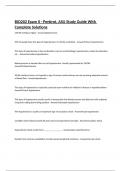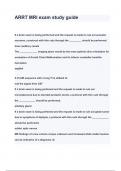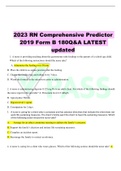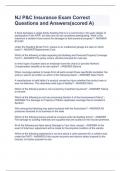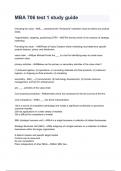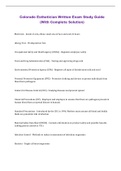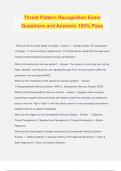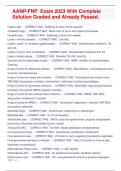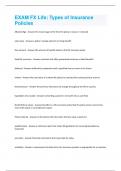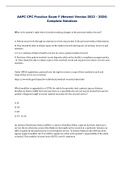Exam (elaborations)
BIO202 Exam II - Penkrot, ASU Study Guide With Complete Solutions
- Course
- Institution
This type of hypertension is due to disorders such as renal blockage, hypertension, endocrine disorders, etc. - AnswerSecondary hypertension Blood pressure is elevated but not yet hypertensive. Usually represented by 120/80 - AnswerPrehypertensive 90/60 mmHg or lower, not typically a sign of ...
[Show more]
